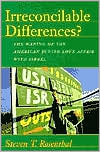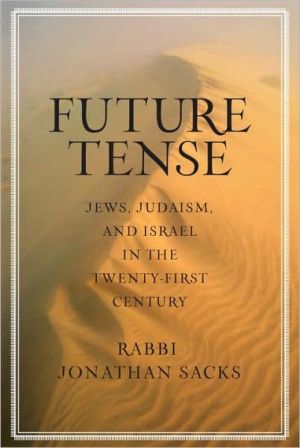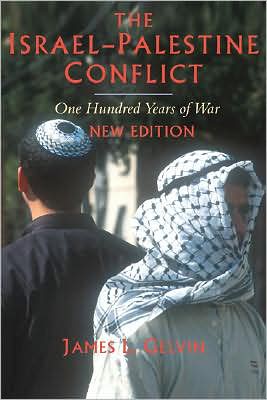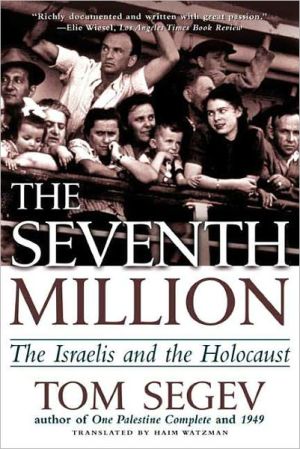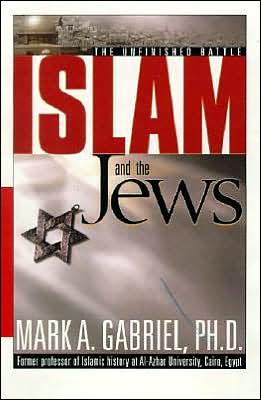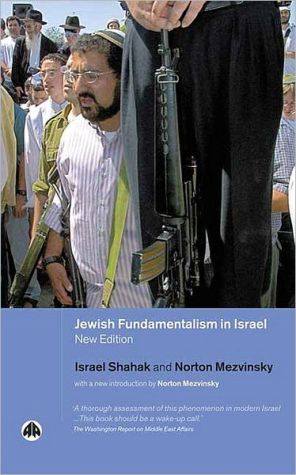Irreconcilable Differences?: The Waning of the American Jewish Love Affair with Israel
From the birth of Israel in 1948 to the mid-1970s, American Jews and Jewish organizations were virtually unanimous in their support of the Jewish state. The unification of American Jews around Israel, the creation of hugely successful mechanisms for financial and political support, and the nearly absolute prohibition of public Jewish criticism of Israel were among the most noteworthy achievements of organized American Jewry during the 60s and 70s. But by the 1990s, all this had changed. Sharp...
Search in google:
A bold analysis of the creation and dissolution of the American Jewish consensus on Israel. Publishers Weekly Until the 1970s, American Jews and American-Jewish groups avidly supported Israel, via political lobbying of the U.S. government and financial contributions to the Israeli government and other institutions. Yet in most cases, explains Rosenthal, who teaches history at the University of Hartford, "the Jewish state has had relatively little effect on the religious and cultural life of American Jews"; rather, it served as a comforting source of identity for those in the diaspora. With balance and clarity, Rosenthal charts the gradual erosion of the "black-and-white morality" that characterized Middle East politics (and the outlook of American Jews) through the Six-Day War of 1967 and the Yom Kippur War of 1973. Israelis were becoming more divided on both political and religious issues, and, he argues, the country's halo slipped with its 1982 invasion of Lebanon, its embrace of American-Jewish spy Jonathan Pollard, its militaristic response to the Palestinian intifada and its acceptance of only Orthodox conversions. Rosenthal is sympathetic, for example, to the mission of the group Breira, which in the 1970s strived "to legitimize public dissent within the American Jewish community," though he is also critical of its "self-righteousness and lack of empathy" for the fears of many Jews. While Rosenthal sees a gulf between liberal Americans and nationalist Israelis, he also believes that Americans can and should support pluralism and tolerance in Israel. More firsthand accounts would have enlivened the book, which draws almost exclusively on secondary sources, though it remains a thoughtful, accessible study. (Apr. 6) Copyright 2001 Cahners Business Information.
\ \ \ \ \ Chapter One\ Zionist Ideology, American Reality\ \ \ American Jews have long been Israel's most ardent foreign supporters. When the UN General Assembly's cynically infamous vote of November 1975 condemned Zionism as racism, vast numbers of Jewish Americans publicly deplored this institutional hypocrisy and demonstrated their solidarity with Zionism and Israel. Hundreds of protest meetings, vigorous statements from almost all Jewish organizations, and innumerable letters to the editor testified to the truth of the slogan emblazoned on the button that many American Jews then took to wearing: "We Are One."\ By 1975, American Jews' identification with Israel and their loyalty to the Jewish state had become so strong that such emotions appeared unremarkable and routine. American Jews had embraced Israel as the culmination of Jewish history, as the highest expression of Jewish virtue, and as an indispensable component of modern Jewish identity. They saw their roles as providing automatic financial and political support for whatever goals or policies the Jewish state chose to pursue. Critics of Israel were simply read out of the organized Jewish community.\ The creation of the American Jewish consensus on Israel, as well as its subsequent breakdown can be understood only within the context of the general relationship among American Jewry, Zionism, and the Jewish state. The historical experience of American Jews contrasted sharply with that of European Zionists, resulting in great differences between the two groups in worldview and priorities. A brief examination of theevolution of Zionism and American Jewry provides critical insight into the development of their relationship.\ American Jews' near total support for Israel masked a century of ideological struggle between Zionists and their religious and secular opponents both in Europe and in the United States. It also concealed the vast gulf in worldview between classical Zionism and American Jews. The Zionist notion that the "Jewish Problem" of persistent anti-Semitism could be solved only through the development of a Jewish state conflicted with the deeply held beliefs of both traditional and modern Jewry. Zionism placed its trust neither in God—as did Orthodox Jews, who were content to await the Messiah—nor in the prospect of a better, more accepting world, as did the assimilated Jews of the West. Instead, Zionists emphasized Jews' own capacity to mold history. The development of a Jewish state would be both manifestation and cause of the spiritual regeneration of the Jewish people. It would revolutionize the relationship between Jews and non-Jews. The Jews, Zionists believed, would cease to be a passive people resigned to an exile borne as an indication of God's love. Nor would they be a frantic, insecure people trying, forever unsuccessfully, to be accepted as individuals by the rest of the world. Rather, Zionists put forth the astounding notion that if Jews would look to earth rather than heaven, to nationalist politics rather than individual assimilation, they could collectively take their rightful place as a people, nation, and state.\ \ \ * * *\ \ \ In Western Europe the gradual waning of liberalism by the mid-nineteenth century and the growth of nationalistic anti-Semitism impelled Moses Hess, a well-known German socialist theoretician who had previously abandoned Judaism, to discount the possibility of further progress. In Rome and a Jerusalem, published in 1862, Hess contended that individual assimilation was impossible. The only way in which Jews would be accepted and respected was by assimilating collectively in the form of a nation. Just as the Italians had achieved a national and political liberation, so too must the Jews take their rightful place in the developing world of national cultures. Hess's dream of a national movement of return to Zion attracted few adherents. Most Western European Jews were busily engaged in taking advantage of their newly acquired rights of citizenship and, despite some ominous signs, were still willing to place their trust in liberalism. In the East the problem was the opposite. Though the victims of great oppression, the Jews of Poland and Russia were too tied to traditional religious conceptions to respond to any program of self-help at variance with passively waiting for the Messiah.\ \ \ * * *\ \ \ Gradual changes in European conditions forced the Jews of both Eastern and Western Europe to look more favorably upon Hess's prescriptions. The new series of pogroms that began in 1881 disabused many Russian Jews of their faith in liberalism. A large number of the disillusioned replaced their hope of acceptance with a program of Jewish nationalism and mass colonization of Palestine. Chief among these was Leo Pinsker, whose pamphlet Self-Emancipation presented "the earliest sustained formulation of political Zionism" and a modern theory of anti-Semitism that became a cornerstone of Zionist ideology. A one-time enthusiastic assimilationist and a leading member of the Society for the Dissemination of Culture among the Jews of Russia, Pinsker was shaken by the pogrom. In recoil, he fashioned a highly original theory of the origins and nature of anti-Semitism. Hatred of Jews, Pinsker maintained, was not a mere carryover from the Middle Ages doomed to disappear as society progressed. On the contrary, it was an incurable psychological disease rooted in the unique social, political, and economic position of Jews. Everywhere aliens, the Jews were a "ghostlike" people, whose unnatural status inspired in Gentiles fear and revulsion. For this reason even immigration to other countries that might initially welcome their presence was but a temporary solution. Once the majority felt threatened by Jewish economic competition, anti-Semitism would recur. Pinsker's most powerful barbs were reserved for those Jews who still believed in the progress of mankind:\ \ \ For the sake of the comfortable position we are granted for the fleshpots which we may enjoy in peace, we persuade ourselves and others that we are no longer Jews, but full-blooded citizens. O idle delusion! Though you prove yourselves patriots a thousand times, you will still be reminded at every opportunity of your Semitic descent. This fateful momento hori will not prevent you, however, from accepting the extended hospitality, until some fine morning you find yourself crossing the border and you are reminded by the mob that you are, after all, nothing but vagrants and parasites, without the protection of the law.\ \ \ The only possible solution to the problem of anti-Semitism was the creation of a Jewish state, of a people living upon its own soil, of a people who could bring about their own self-emancipation: "We must prove that the misfortunes of the Jews are due, above all, to their lack of desire for national independence; and that this desire must be aroused and maintained in them if they do not wish to exist forever in a disgraceful state—in a word we must prove that they must become a nation." The creation of a Jewish state not only would protect those who resided there but would lessen, though not eradicate, anti-Semitism by making the Jewish status more comprehensible to the world at large. Pinsker's views were dismissed in the West and enthusiastically received by only a small number in Eastern Europe. They nevertheless set the tone for most subsequent Zionist analysis.\ While Self-Emancipation had little impact in Western Europe, the growth of racially based anti-Semitism provided the objective support for Pinsker's analysis. The fifteen years between Pinsker's pamphlet and Herzl's publication of The Jewish State in 1896 saw the Jews of Western Europe placed in an increasingly defensive position. Movements to limit Jewish participation in government in Germany, increased social discrimination, and the Dreyfus trial in France revealed the precariousness of Jewish security. It was from this context that Theodore Herzl, the true founder of the Zionist movement, emerged. Born in Bohemia and almost totally assimilated, Herzl had become converted to Zionism by a traumatic event. As Paris correspondent for Vienna's most prestigious newspaper, Herzl was present at the ceremonial degrading of Alfred Dreyfus, a Jewish captain on the French general staff, whose conviction on trumped-up spy charges provided the focus for a struggle between French liberals and advocates of the prerevolutionary political order. To Herzl the miscarriage of justice was less shocking than the crowds who clamored for death to Jews. As Herzl emotionally wrote, "In republican, modern, civilized France, a hundred years after the Declaration of the Rights of Man ... the edict of the Great Revolution has been revoked."\ Herzl quickly reached a conclusion that the Jews must reestablish themselves as a nation. In 1896 he published The Jewish State, in which his analysis of the Jewish problem was strikingly similar to that of his predecessors. Herzl's view of the impossibility of assimilation was particularly akin to Pinsker's:\ \ \ We have sincerely tried everywhere to merge with the national communities in which live, seeking only to preserve the faith of our fathers. It is not permitted. In vain we are loyal patriots, sometimes superloyal, in vain do we make the same sacrifices of life and property as our fellow citizens, in vain do we strive to enhance the fame of our native lands in the arts and science, or her wealth by trade and commerce. In our native lands where we have lived for centuries we are still decried as aliens, often by men whose ancestors had not yet come at a time when Jewish sighs had long been heard in the country. The majority decide who the "alien" is, this and all else between peoples is a matter of power.\ \ \ Herzl's solution sprang naturally from his continuing faith in the other great Enlightenment virtue, rationality. Anti-Semitism could be put to rational use by convincing the nations of Europe that it was in their self interest to solve their Jewish problems by providing the Jews with a territory on which to establish a state of their own. "Let supremacy be granted us over a portion of the globe adequate to meet our rightful natural requirements, we will attend to the rest." The resulting state would not be merely a refuge but the focus of a new society that would again make the Jews an inspiration to the world. The last pages of The Jewish State express the sense of utopian exultation that formed a large part of Herzl's appeal: "We shall live at last as free men on our own soil, and in our own houses peacefully die. The world will be liberated by our freedom, enriched by our wealth, and magnified by our greatness. And whatever we attempt there for our own benefit will redound mightily and beneficially to the good of all mankind."\ Herzl's originality lay in his conversion of "the Jewish problem" into a political question. In contrast to the limited and ad hoc colonization of Palestine that was then occurring, Herzl envisaged the eventual total ingathering of the Jewish people. But such colonization, he insisted, had to be preceded by guarantees of political support from the great powers of Europe.\ The notoriety resulting from the publication of The Jewish State gained Herzl access to the most important Jewish philanthropists, Baron Maurice de Hirsh and Baron Edmund de Rothschild. He had hoped to gain their political and financial support; but, afraid Jewish nationalism might subject the Jews of Western Europe to charges of dual loyalty, they refused to give colonization any moral or material backing. Herzl's response was to attempt to revolutionize Jewish life from below and appeal directly to the Jewish masses—especially those of Eastern Europe, who had greeted his program with great enthusiasm. Over the sometimes frantic objections of Western assimilationists, he organized a Zionist Congress to legitimize and carry out his program for establishing a Jewish state.\ Meeting in Basel, Switzerland, in 1897, the First Zionist Congress drew two hundred delegates from all over the world, from across the spectrum of Jewry. The first sentence of the Congress's statement of purpose proclaimed: "Zionism seeks to secure for the Jewish people a publicly recognized, legally secured home in Palestine." To enlist the support of both Jews and the world at large, the Congress created the World Zionist Organization. Herzl, elected as its first president, could now speak as the representative of a formal organization that had received a substantial mandate from world Jewry. After the Congress, Zionist societies sprang up all over the world. These were particularly successful in attracting the Eastern European Jewish masses, who declared their formal adherence to the movement by paying the modern equivalent of a biblical shekel.\ Zionism quickly encountered the fierce opposition of groups as diverse as the Orthodox, the assimilationists, and the socialists, all of whom rejected the idea of a national return to the Promised Land. The Zionists replied that traditional Jewish life in the Diaspora (exile) was unproductive, abnormal, and inferior. Yet Zionism's appeal to the Orthodox could only be on the basis of religion, since Herzl's rapturous reception by Eastern European Jews was based on the belief that he was a kind of modern Messiah who would lead his people to the Promised Land. In this sense Zionism presented itself as the fulfillment of Jewish history. But despite its messianic component, Zionism remained a great departure from traditional Judaism. It perceived most of Jewish history, from the dispersion to modern times, as irrelevant, ignoble, and an unworthy expression of the Jewish spirit, resulting from the abnormal condition of exile. Yet it was just this period that had produced the Talmud, much of religious ritual, and most of the institutions of Jewish life. By deemphasizing these foundations of normative Judaism and substituting nationalist activism for what it considered the passivity of the Diaspora, Zionism sought to revolutionize Jewish life.\ \ \ * * *\ \ \ Despite Zionists' efforts most West European Jews remained tied to assimilationism and pointed to the real gains in legal and economic status they had achieved. Zionism, building upon its conception of the unworthiness of Diaspora life, now began to emphasize the effects of exile on the internal world of the "liberated" Jew. This theme was sounded by Herzl's colleague, Max Nordau, at the First Zionist Congress:\ \ \ The emancipated Jew is insecure in his relations with his fellow man, timid with strangers, and suspicious, even of the secret feelings of his friends. His best powers are dissipated in suppressing and destroying or at least in the difficult task of concealing his true character.... He has become a cripple within, and a counterfeit person without, So that like everything unreal, he is ridiculous and hateful to all men of high standards.\ \ \ The only way for a Jew to escape this psychic hell was to embrace Zionism, which promised "an assured place in society, a community which accepts him, the possibility of employing all his powers for the development of his real self instead of abusing them for the suppression and falsification of his personality."\ \ \ * * *\ \ \ Herzl's later followers went even further in their rejection of Diaspora Judaism and its values. As Zionism came into increasing contact with Eastern European socialism, it was influenced by the latter's social criticism of the ghetto and its total rejection of religion. Partly to outbid the socialists, particularly after a new period of pogroms in Eastern Europe, Zionist criticism of Jewish life became more and more strident. Zionist "negation of the diaspora" reached a high point in the writing of Jacob Klatzkin, a Jewish National Fund official and editor of the official journal of the World Zionist Organization, Die Welt. In Klatzkin the image of the Jew as a rootless cosmopolitan (as first used by Nordau) reached its highest development:\ \ \ Galut [exile] can only drag out the disgrace of our people and sustain the existence of a people disfigured in both body and soul—in a word, of a horror.... Such a life, even if it continues to exist, will represent no more than a rootless and restless wandering between two worlds. It will cause rent and broken human beings to persist—individuals diseased by ambivalence, consumed by contradictions, and spent by restless inner conflict.\ \ \ Thus, the Galut was simply unworthy of survival and any efforts to keep it alive could be only temporarily successful. But the Jews of the exile had a function: to serve as a source of supply for the renaissance of the homeland. "Without this raison d'etre, without the goal of a homeland, the Galut is nothing more than a life of deterioration and degeneration, a disgrace to the nation and a disgrace to the individual, a life of pointless struggle and futile suffering, of ambivalence, confusion and eternal impotence. It is not worth keeping alive."\ A minority group within the Zionist movement, the cultural Zionists led by the Hebrew essayist Ahad Ha'am, had a higher opinion of the potentialities of the Diaspora. Unlike Herzl, whose point of departure was the ineradicability of anti-Semitism, Ahad Ha'am was more concerned with the internal crisis of Judaism. However great the physical threat to Jews, Ahad Ha'am felt that assimilation was an even greater threat to Jews' moral and spiritual uniqueness. Rather than building a political refuge from anti-Semitism, Ahad Ha'am saw Zionism's primary task as the creation of a national cultural center that would revive the Jewish spirit. Since he felt that a total ingathering of Jews was neither desirable nor possible, "from this center the spirit of Judaism will radiate to the great circumference, to all communities of the Diaspora, to inspire them with a new life and to preserve the overall unity of our people." Rather than doing everything to convince the Diaspora Jews to settle in Palestine, cultural Zionists feared that the exclusive concentration upon politics at the expense of Jewish culture and education would create a state of Jews that was not a Jewish state.\ But cultural Zionism's more accepting view of the Diaspora remained a minority position. The political Zionists achieved a great victory when Great Britain, seeking Jewish support during World War I and looking to a new postwar Middle East, issued the Balfour Declaration of 1917, declaring Great Britain's readiness to support the establishment of a "Jewish Homeland." Britain's assumption of the mandate for Palestine after World War I made mass colonization possible. In their zeal to attract immigrants and to provide motivation for the building of the new land, Zionists naturally exalted the new life and denigrated the old. The "negation of the Diaspora" remained a prevalent theme within Zionist thought. Ever desperate to attract settlers by pointing out the shortcomings of traditional Jewish life, Zionist propaganda reached such a state of virulence that in the 1930s a debate took place within the movement concerning the propriety of what was termed "Jewish anti-Semitism out of love." This Jewish anti-Semitism was expressed in endless condemnations of the external and internal lives of Diaspora Jews, in the exaggerated exaltation of physical labor in Palestine as a cure for Jewish problems, and in slogans such as "revival of the land, revival of the parasitic people."\ \ \ * * *\ \ \ The Zionist notion that anti-Semitisim was ineradicable and that Jewish life in the Diaspora was doomed could not have been more inimical to the worldview and daily concerns of American Jews. In fact the American Jewish experience posed great theoretical and practical problems for Zionist ideology and recruitment. On a theoretical level, Jewish life in America seemed to undermine Zionist analyses concerning the inevitability and prevalence of anti-Semitism. For millions of Jews who felt that their Promised Land lay somewhere between the Battery and the Bronx, political Zionism was irrelevant at best. In 1885, American Reform Judaism declared that Jews "were no longer a nation but a religious community" and did not expect "a return to Palestine." Zionism raised the specter of dual loyalties and appeared to threaten the Jews' position in their homeland. As a result, during the first years of the twentieth century the American Zionist movement developed very slowly. The impetus to its growth was not domestic anti-Semitism but American Jews' identification with the plight of their Eastern European brethren. The anti-Semitism that fueled American Zionism was mostly secondhand, and American Jews joined the fledgling Zionist movement as a possible solution to the persecutions in Poland and Russia. Since the security and opportunity of America was in such contrast to the European environment, the Zionism produced by American Jews was greatly different in ideology, goals, and methods from that forged on the anvil of czarist persecution. While this caused numerous conflicts, only by adapting to American conditions did Zionism make any inroads among American Jews at all.\ Just as the "Jewish problem" in Europe was the product of general European history, the uniquely favorable position of Jews in America was similarly bound to the development of the larger society. Although many Americans still harbored the traditional anti-Jewish attitudes of Christian Europe, the demographic, political, social, and intellectual characteristics of the United States had discouraged religious anti-Semitism and created a society whose ethos worked against the institutionalization of racial anti-Semitism. Many of the conditions that had led to the growth of anti-Jewish feeling in Europe were absent in America or mitigated by other circumstances. As a new society whose political system was a conscious product of Enlightenment thought, America was devoid of those medieval institutions and structures that in Europe had produced or perpetuated anti-Semitism. There was no established church to foster universal detestation of the Jew, no medieval corporations or communities to separate Jew from Gentile, and relatively few economic and social restrictions. In the absence of a formal tradition of anti-Semitism the American Revolution's commitment to liberalism provided no special benefits for Jews. Jewish enfranchisement took place as a part of the process that conferred citizenship upon all Americans. As a result, the emancipation of Jews could not become a symbol of the new liberal social order as it had in Europe. In any case, liberalism itself, far from being a subject of debate, was enshrined as the basis of the American political system. Even the most conservative American could not help but invoke the Revolution with its emphasis upon individual freedom.\ The social and demographic characteristics of America also discouraged systematic anti-Semitism. Ethnic and religious diversity, the separation of church and state, the need for immigrants to develop the land, and the egalitarianism of a frontier society, all confirmed and strengthened American commitment to the liberalism of the American Revolution. Anti-Jewish feeling had little intellectual or social basis in American society, and the first century of the Republic was relatively free of official anti-Semitism. The most famous exception is General Grant's "Order Number Eleven" by which the Civil War commander in 1862 expelled all Jews from the war zone. After being informed by the American Jewish community, President Lincoln canceled the order immediately. Yet the infamous status in American Jewish history of this, comparatively mild and isolated case of official anti-Semitism demonstrates, as nothing else, the security of American Jews during the early years of the Republic. Anti-Jewish attitudes persisted, however, in church doctrine, in popular culture, and in individual prejudice. In the 1880s there was a growth of popular anti-Semitism, fueled by Jews' economic success, by antiurban sentiment, by pseudoscientific racism, and by resentment of the new commercial society in which Jews enthusiastically took part. But even then anti-Semitism was predominantly restricted to social ostracism of Jews and did not seriously threaten either their material or their personal security.\ If the quality and content of Jewish-Christian relations in the United States was unusual, the relationship of Jews to one another was unique. Since there was no official Jewish community empowered and supported by the government, American Jews were free of any coercive religious or social control by their coreligionists. Since one related to society as an individual and not through a corporate religious body, a person was free to choose his religious belief. For the Jewish immigrant especially, the informal religious sanctions of family and village quickly broke down under the stresses and opportunities of America. The result of this unparalleled freedom was that, unlike in Eastern Europe, where revolt against the rigidity of religious control was often a push toward Zionism, American Jews had little against which to revolt. Indeed, Reform Rabbi Isaac Meyer Wise, one of America's most powerful Jewish leaders, was moved at the time of the First Zionist Congress to declare the movement to be the product of the "momentary inebriation of morbid minds." From the very beginning of their history in America, Jewish immigrants to the United States were not so much concerned with preserving their identities as Jews as with fulfilling their new ones as Americans.\ Despite the seeming irrelevance of Zionism to American conditions, continuing persecutions of European Jews and, paradoxically, the security and success of American Jews gave rise to a small Zionist movement. The pogroms and persecutions in Russia, Rumania, and Poland assumed a regular intensity that left no doubt that they were part of official government policy. In 1903 the worst outbreak took place at Kishinev in White Russia, where forty-seven Jews were killed and hundreds brutalized and left homeless. It is a measure of our own age's diminished capacity for moral outrage that the death of forty-seven sent shock waves throughout the world. American Jews lodged protests, collected aid for the victims, and enlisted the help of the president and Congress to prevent future pogroms. But the outrages only increased.\ The reaction of the influential German American Jews who comprised the American Jewish establishment was to form a permanent organization to defend Jewish interests. Self-appointed and composed of the cream of German American Jewry, the American Jewish Committee had little connection with the vast majority of Jews in whose name it presumed to speak. Its method of promoting Jewish interests also reflected the committee's genteel origins. Rather than engaging in public political agitation that might reflect unfavorably upon Jews, the committee preferred to act as a backstage lobbyist with the American political establishment. The composition and methods of the committee alienated the masses of Eastern European Jews, who felt that such tactics smacked of the old country and were not worthy of American citizens. Some of those advocating a more avowedly political organization were attracted to Zionism. Even though Zionist ideology did not suit American conditions, Zionist-led settlement in Palestine would help relieve the suffering of Eastern European Jews. In addition, the reaffirmation of Jewish values, which was a vital component of Zionist doctrine, appealed to those who felt that the material and social success of Jews in America was eroding their spiritual identity.\ The themes sounded by early American Zionists were not those of European Zionism: the ineradicability of anti-Semitism and the necessity of all Jews to settle in Palestine. While some rabbis emphasized that Zionism could serve as a spiritual bulwark against assimilation, the American movement as a whole emphasized that it was the duty of secure American Jews to help their Eastern European coreligionists reach Palestine, where they could lead secure and productive Jewish lives. The total ingathering of all Jews motivated American Zionists not in the slightest. In 1898 the Zionist Organization of America (ZOA), which had been formed the year before in response to Herzl's call, explained in its first pamphlet the limited concerns of American Zionism. Written by Richard Gottheil, the organization's first president, the pamphlet sounded the theme for subsequent American Zionism. After expressing the general Zionist conviction that the oppressed Jews of the world must find a haven by settling in Palestine, Gottheil was quick to emphasize that American Jews did not fall into this category:\ \ \ But if you ask if Zionism is able to find a permanent home in Palestine for those Jews who are forced to go there as well as those who wish to go, what is to become of us who have entered to such a degree into the life around us and who feel able to continue as we have begun? What is to be our relation to the new Jewish polity? I can only answer, exactly the same as is the relation of people of other nationalities all the world over to their parent home. What becomes of the Englishman in every corner of the globe; what becomes of the German? Does the fact that the great mass of their people live in their own land prevent them from doing their whole duty toward the land in which they happen to live? Is the German-American considered less of an American because he cultivates the German language and is interested in the fate of his fellow Germans at home? Is the Irish-American less of an American because he gathers money to help his struggling brethren in the Green Isle?\ \ \ From the beginning, then, American Zionists, while accepting the necessity of a Jewish homeland, quickly added, "but not for me." In feeling that they already had a permanent home, American Zionists disagreed totally with their European counterparts. But for the moment this vast ideological and social difference could be ignored, as both the European and American Zionist movements concentrated on the practical work of alleviating the misery of Eastern European Jewry. The humorous definition of a Zionist as "an American Jew who sends money to a German Jew so that an East European Jew could go to Palestine" was not far off the mark. Most American Jews, however, remained indifferent to even the limited aims of American Zionism. The specter of Jewish persecution in Europe made them cherish America all the more and not want to do anything that might rock the boat. Above all, they feared the accusations of dual loyalty, a charge levied (by fellow Jews) against the early Zionist Emma Lazarus, whose poetry was considered American enough to grace the Statue of Liberty. The fact that Lazarus, who celebrated America as the refuge of the oppressed, could simultaneously be a Zionist reveals the gulf between the European movement and its American adherents.\ (Continues...)
AcknowledgmentsIntroductionCh. 1Zionist Ideology, American Reality1Ch. 2The Making of the American Jewish Consensus22Ch. 3The World Turned Upside Down42Ch. 4The Invasion of Lebanon61Ch. 5The Pollard Affair76Ch. 6The Intifada93Ch. 7The Perils of Peace116Ch. 8Who Is a Jew?134Ch. 9An Ambivalent Anniversary156Ch. 10The Hidden Crisis170Epilogue195Notes199Selected Sources213Index219
\ Publishers Weekly - Publisher's Weekly\ Until the 1970s, American Jews and American-Jewish groups avidly supported Israel, via political lobbying of the U.S. government and financial contributions to the Israeli government and other institutions. Yet in most cases, explains Rosenthal, who teaches history at the University of Hartford, "the Jewish state has had relatively little effect on the religious and cultural life of American Jews"; rather, it served as a comforting source of identity for those in the diaspora. With balance and clarity, Rosenthal charts the gradual erosion of the "black-and-white morality" that characterized Middle East politics (and the outlook of American Jews) through the Six-Day War of 1967 and the Yom Kippur War of 1973. Israelis were becoming more divided on both political and religious issues, and, he argues, the country's halo slipped with its 1982 invasion of Lebanon, its embrace of American-Jewish spy Jonathan Pollard, its militaristic response to the Palestinian intifada and its acceptance of only Orthodox conversions. Rosenthal is sympathetic, for example, to the mission of the group Breira, which in the 1970s strived "to legitimize public dissent within the American Jewish community," though he is also critical of its "self-righteousness and lack of empathy" for the fears of many Jews. While Rosenthal sees a gulf between liberal Americans and nationalist Israelis, he also believes that Americans can and should support pluralism and tolerance in Israel. More firsthand accounts would have enlivened the book, which draws almost exclusively on secondary sources, though it remains a thoughtful, accessible study. (Apr. 6) Copyright 2001 Cahners Business Information.\ \ \ \ \ This work is notable first and foremost because it introduces a fresh and much-needed social perspective into a field that is overrun with political and historical analyses, and secondly because the author has labored so effectively to present a balanced story. At once a studied academic investigation and a highly accessible contribution to popular debate, Rosenthal's account treads a careful path through a polemical minefield.\ \ \ Library JournalEach of the ten chapters in Rosenthal's (history, Univ. of Hartford; The Politics of Dependency) study touch on key issues, such as the Pollard affair, the intifada, and the "Who Is a Jew?" controversy, in the relationship between American Jews and Israel. The author examines the evolution of the relationship over the decades, arguing that the unquestioning support American Jews once had for Israel has eroded and that crucial tensions exist today. Israel, now a modern power rather than a fledging nation, is no longer dependent upon the unblinking support of American Jews, who are consumed with immediate concerns (such as the issues raised by the high degree of intermarriage) at home. Many readers might nevertheless argue that the American Jewish community still plays a powerful role, however, and its support, while evolving, remains essential. This clearly written, if controversial, book, will best be appreciated by informed readers who have background knowledge of the subject. Recommended for libraries with strong Jewish studies collections. Paul Kaplan, Lake Villa Dist. Lib., IL Copyright 2001 Cahners Business Information.\ \ \ \ \ Kirkus ReviewsA cogent exploration of the evolving relationship between Israel and American Jewry, from early Zionism through to the present day. Rosenthal (The Politics of Dependency, 1980) presents a remarkably even-handed account of this ever-shifting interdependence through the analysis of certain key events in Israel's history (viz., the invasion of Lebanon, the Pollard affair, the Intifada, and the "Who is a Jew" controversy). The author argues that the past two decades have seen a radical transformation in the nature of American Jewish support for Israel. Although America's Jewish diaspora traditionally presented a public face of unconditional support and uncritical generosity, Rosenthal argues that there is now a great deal of fragmentation and dissent. He explains this shift as the consequence of mounting debate over Israel's defense and security policies, its increasing wealth, its changing population, the intransigence of its right wing, and the efforts of Orthodox authorities to relegate Conservative and Reform Judaism to second-class status. This two-pronged argument suggests not only that American Jews have become disenchanted with Israel, but that the passing of time has exorcised the specter of the Holocaust (and thereby removed Zionism's primary raison d'être). It is this combination of events in the early 1980s that lifted American Jewry's decades-old gag rule on public criticism of the state and opened the floodgates for political dissent, a transition that Rosenthal terms "a natural reflection of the fragmentation of Israeli politics." This work is notable first and foremost because it introduces a fresh and much-needed social perspective into a field that is overrunwithpolitical and historical analyses, and secondly because the author has labored so effectively to present a balanced story. At once a studied academic investigation and a highly accessible contribution to popular debate, Rosenthal's account treads a careful path though a polemical minefield.\ \
